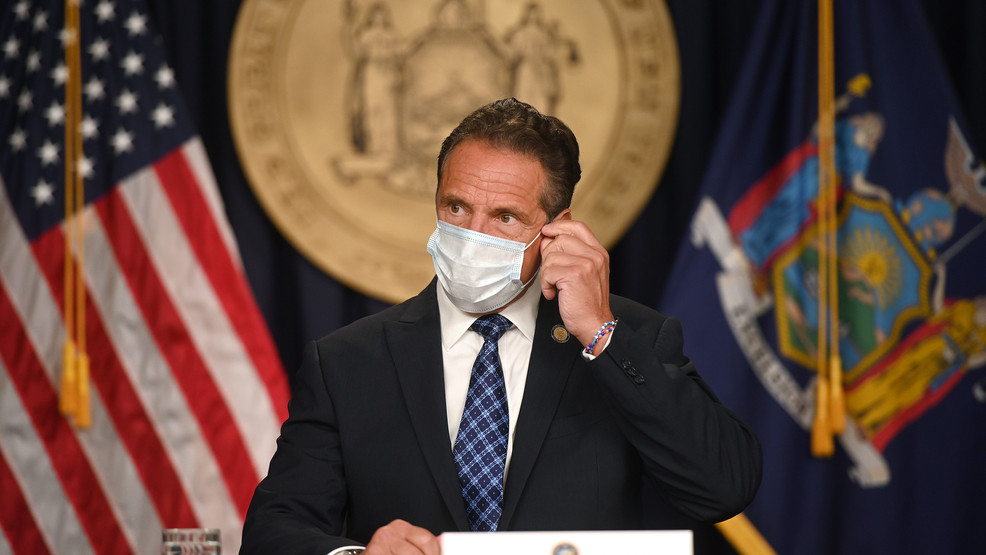On Friday, October 9, 2020, Judge Kiyo Matsumoto of the New York Eastern District Court ruled in the case of Agudath Israel of America et. al v Cuomo that the lockdown order of New York Governor Andrew Cuomo of religious institutions is not a violation of the First Amendment’s protection of religious freedom.
Several religious institutions sued the Governor after he ordered them closed. Cuomo argued that these institutions were in COVID hot zones and that public health issues required their closure to protect the public.
On Tuesday, October 6, 2020, Governor issued Executive Order 202.68, which gave the New York State Department of Health the authority to divide into three zones depending upon their COVID risks. The order stated that “Certain activities shall be restricted and any permitted activities, in all three zones below, shall be conducted in strict adherence to Department of Health guidance.”
The New York State Department of Health determined that there should be three zones: Red, Orange, and Yellow.
Rules in the red area:
-Houses of worship – 25% capacity, 10 people maximum
-Mass gatherings prohibited
-Nonessential businesses closed
-Takeout dining only
-Schools closed
Rules in the orange area:
-Houses of worship – 33% capacity, 25 people maximum
-Mass gatherings – ten people maximum indoor and outdoor
-Businesses – Closing high-risk nonessential business such as gyms and personal care
-Outdoor dining only with four people max per table
– Schools: remote learning only
Rules in the yellow area
-Houses of worship -50% capacity
-Mass gatherings – 25 people maximum, indoor and outdoor
-Businesses open
-Indoor and outdoor dining
-Schools – Mandatory weekly testing of students/teachers/staff for in-person classes. Testing will start next week.
Many religious organizations felt that these closures by the state violated their First Amendment right to freedom of religion.
The Brooklyn Diocese of New York and Orthodox Jewish organization, Agudath Israel, brought suit in Federal court to get a restraining order that would prohibit the state from closing religious institutions.
Bishop of Brooklyn Nicholas DiMarzio explains the position of the Brooklyn Diocese of New York and argues that “the executive orders this week have left us with no other option than to go to court. Our churches have the capacity to accommodate many worshippers and to reset our attendance capacity to 10 people maximum in the red zone, and 25 people in the orange zone, when we have had no significant cases, impedes our right to worship and cannot stand,” the Church’s position is that “The State has completely disregarded the fact that our safety protocols have worked and it is an insult to once again penalize all those who have made the safe return to Church work.”
The Jewish community was particularly vocal on this issue because the Executive order would force the closure of many religious institutions over the Jewish holiday of sukkot. The lawsuit argued, “Forty-eight hours before the onset of these holidays, Defendant Governor Cuomo issued an Executive Order that singles out and discriminates against all houses of worship — and synagogues in particular — by imposing occupancy and gathering restrictions that make it impossible for Orthodox Jews to comply with both their religious obligations and the Order.”
Judge Matsumoto held that the state’s need to protect its citizens is legitimate. The court ruled against the religious institutions, and the order by the Ney York State to close them stands. The question remains whether these organizations will comply with the order.
You may also like:
-
Golden Globes 2024: Hollywood’s typical night of fun turned sour
-
Second Chapter: Gypsy Rose Blanchard navigates new life after prison
-
Executives transform stuffed animals with a plushy revolution
-
Man Attempts to Cross Atlantic Ocean in a Homemade Hamster Ball
-
The Paqui One Chip Challenge has returned with deadly results
